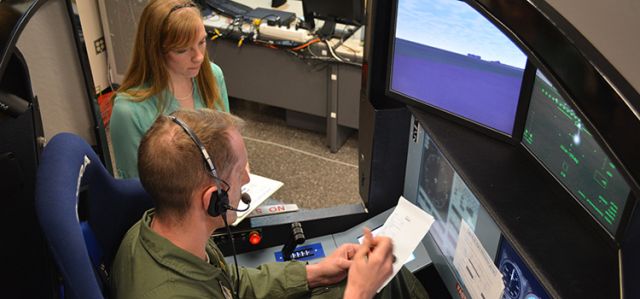Document Type
Article
Publication Date
8-15-2020
Publication Source
Fuel
Abstract
A machine learning framework has been developed to predict volume swell for 10 non-metallic materials submerged in neat compounds. The non-metallic materials included nitrile rubber, extracted nitrile rubber, fluorosilicone, low temp fluorocarbon, lightweight polysulfide, polythioether, epoxy (0.2 mm), epoxy (0.04 mm), nylon, and Kapton. Volume swell, a material compatibility concern, serves as a significant impediment for the minimization of the greenhouse gas emissions of aviation. Sustainable aviation fuels, the only near and mid-term solution to mitigating greenhouse gas emissions, are limited to low blend limits with conventional fuel due to material compatibility issues (i.e. O-ring swell). A neural network was trained to predict volume swell for nonmetallic materials submerged in neat compounds. Subsequent blend optimization incorporated nitrile rubber volume swell predictions for iso- and cycloalkanes to create a high-performance jet fuel within 'drop-in' limits.
The results of this study are volume swell predictions for 3 of the 10 materials -nitrile rubber, extracted nitrile rubber, and polythioether- with holdout errors of 12.4% or better relative to mean volume swell values. Optimization considering nitrile rubber volume swell achieved median specific energy [MJ/kg] and energy density [MJ/L] increases of 1.9% and 5.1% relative to conventional jet fuel and an average volume swell of 6.2% v/v which is within the range of conventional fuels. Optimized solutions were heavily biased toward monocycloalkanes, indicating that they are a suitable replacement for aromatics. This study concludes that cycloalkanes can replace aromatics in jet fuel considering volume swell and other operability requirements while significantly reducing soot and particulate matter emissions.
ISBN/ISSN
0016-2361
Document Version
Published Version
Publisher
Elsevier Sci Ltd
Volume
274
Peer Reviewed
yes
eCommons Citation
Kosir, Shane; Heyne, Joshua; and Graham, John, "A Machine Learning Framework for Drop-in Volume Swell Characteristics of Sustainable Aviation Fuel" (2020). Mechanical and Aerospace Engineering Faculty Publications. 256.
https://ecommons.udayton.edu/mee_fac_pub/256




Comments
This open-access article is provided for download in compliance with the publisher’s policy on self-archiving. To view the version of record, use the DOI: https://doi.org/10.1016/j.fuel.2020.117832